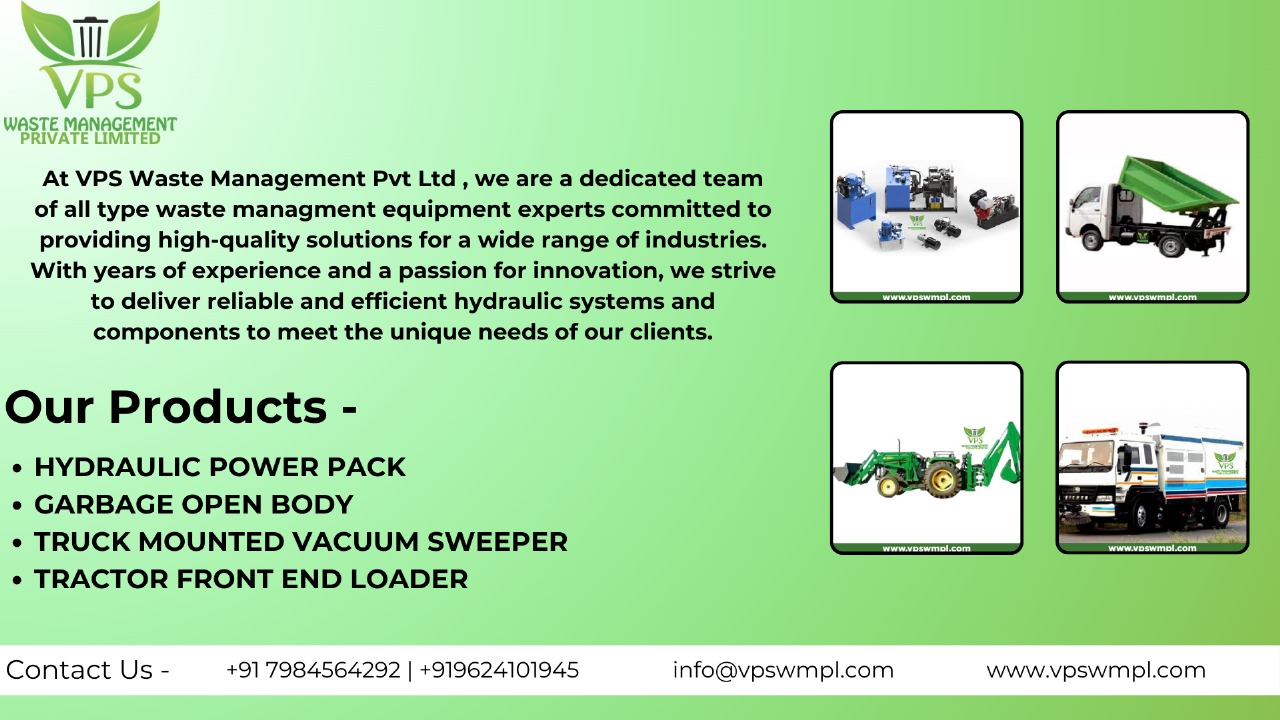Garbage Refuse Compactor
A GarbageRefuse Compactor is an industrial waste management machine designed to
compress waste materials in order to maximize space utilization in waste
containers and reduce the frequency of waste collection. It is typically
used in municipal waste collection, industrial waste management, and
large-scale waste disposal systems. These machines are equipped with hydraulic
or mechanical compacting mechanisms that apply significant force to
compress waste materials, reducing their volume and ensuring that they are
tightly packed into dumpsters, garbage trucks, or storage containers.
10 FAQs of Garbage Refuse Compactor
- What is a garbage refuse
compactor?
A garbage refuse compactor is a machine used to compress waste materials to reduce their volume, making waste management more efficient and cost-effective. - How does a garbage refuse
compactor work?
It uses hydraulic or mechanical pressure to compress waste into a tightly packed form, making it more compact and easier to transport. - What types of waste can a
garbage compactor handle?
It can handle a variety of waste materials, including household trash, industrial waste, recyclables, yard debris, and construction materials. - What are the different types
of garbage compactors?
The main types include stationary compactors, self-contained compactors, and mobile compactors, each with specific applications based on the waste management setup. - What is the advantage of
using a compactor?
It reduces the volume of waste, which leads to fewer collection trips, lower disposal costs, and optimized use of space in containers. - How much space does a
garbage compactor save?
A compactor can reduce the volume of waste by up to 70%, meaning less space is required for storage and transport. - Is the garbage compactor
suitable for all types of waste?
Yes, it is effective for a broad range of waste materials, though certain models may be better suited for specific types of waste (e.g., wet waste, industrial waste). - Can a compactor prevent
odors and pests?
Yes, because it compacts the waste into sealed, tight containers, it minimizes odors and reduces the likelihood of pests infesting the waste. - How is maintenance handled
for a garbage refuse compactor?
Regular maintenance includes checking the hydraulic system, ensuring the compaction mechanism is working properly, and inspecting the container and seals for wear and tear. - Are there environmental
benefits to using a garbage compactor?
Yes, by reducing the frequency of waste collection and optimizing transport efficiency, compactors help reduce emissions associated with waste trucks and promote better waste management practices.
Applications of Garbage Refuse Compactor
- Municipal Waste Management
Used in cities and towns for compressing household garbage before transportation to landfills or recycling facilities. - Industrial Waste Disposal
Essential for managing industrial waste in factories, warehouses, and manufacturing plants by reducing the volume of waste generated. - Commercial Waste Collection
Ideal for use in restaurants, hotels, and shopping centers, where large amounts of waste are produced daily. - Construction and Demolition Waste
Compactors are used at construction sites to reduce the volume of waste like wood, metal, and plastic debris. - Recycling Centers
Used to compact recyclable materials (such as cardboard, plastics, and metals) into bales for more efficient transport and processing. - Retail and Distribution
Centers
In warehouses and retail stores, compactors help compress the high volume of cardboard packaging, plastic film, and other waste materials. - Medical Waste Management
Compactors are used to safely handle and compress medical waste in hospitals and clinics to minimize volume and reduce infection risks. - Food Waste Management
Used in food production and processing plants to compact organic waste, reducing its volume before disposal or composting. - Agricultural Waste Disposal
Agriculture operations use compactors for compressing agricultural byproducts, such as straw, leaves, and organic waste. - Event Waste Management
For large-scale events such as concerts, festivals, and conferences, compactors are used to manage and compress the large amounts of waste generated during these events.
Benefits of Garbage Refuse Compactor
- Space Efficiency: Significantly reduces the
volume of waste, allowing for more efficient use of storage containers and
waste bins.
- Cost Savings: Reduces the number of
waste collection trips needed, which translates into lower
transportation and landfill costs.
- Environmental Impact: By reducing waste volume
and the frequency of waste collection, compactors help lower fuel
consumption and reduce greenhouse gas emissions from garbage
trucks.
- Reduced Odor and Pests: Waste is sealed tightly in
the compactor, minimizing odors and making it less attractive to pests.
- Improved Waste Handling: Facilitates safer handling of waste materials by reducing overflow and spillage.
- Enhanced Hygiene: Reduces exposure to waste,
keeping the environment cleaner and more hygienic.
- Increased Efficiency: With fewer trips
required to empty waste bins and containers, waste handling becomes much
more efficient.
- Durable and Long-Lasting: Built to withstand
heavy-duty use, compactors are made of high-strength materials that
ensure long-term performance.
- Customizable: Available in various
configurations, from small mobile compactors for individual
businesses to large stationary compactors for municipal waste
management.
- Waste Segregation Support: Helps in segregating
recyclable materials by compacting waste into designated containers for
further processing.
Contact
us more details:
Call: +91 7984564292 +919624101945
Email: vpswmpl@gmail.com info@vpswmpl.com
Address: Ahmedabad Office : Shed No. B-21, Shree Mahalaxmi Estate, Wandervat
Talav, Near Shankeshwar Estate, GIDC Vatva, Ahmedabad - 382440, Gujarat,
INDIA.

